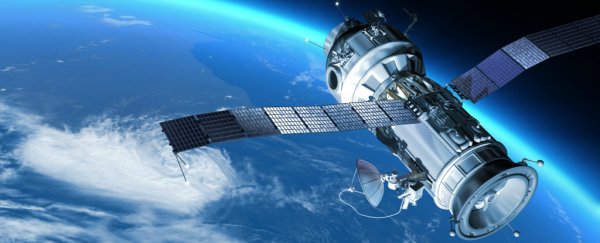After more than a year, NASA has at last picked a new chief scientist to serve as the agency's principal science advisor. On Tuesday, the US space agency announced that Jim Green would be be replacing Dr. Gale Allen, the current acting advisor.
Because NASA does not yet have an official administrator, acting administrator Robert Lightfoot made the final decision to promote Green.
"I'm excited to have Jim take on this new role," Lightfoot said.
"He brings a variety of scientific research experience and planetary exploration expertise to the chief scientist position that will allow him to hit the ground running with great enthusiasm and engagement."
Green is NASA's former Planetary Science Division Director and he brings with him over a decade of experience in managing successful space missions, including the Mars rover missions and the New Horizons mission to Pluto and beyond.
In his new job, Green will be offering advice on NASA's agency science programs, its planning and its policy. He will also be the spokesperson when it comes to communicating NASA's research goals and achievements to the public.
In the past, Green has said that science fiction was part of what inspired him to become a scientist.
'I was a teen in the sixties so consequently I watched the original Star Trekfrom the very first episode and it was like nothing else on TV," said Green in a 2015 NASA interview.
"[At the] same time I was working in an observatory. So the science fact and the science fiction part was just a wonderful combination for me so when I went to college I knew exactly what I wanted to do."
After receiving his PhD in Space Physics from the University of Iowa, Green began working at NASA in 1980.
In his decades at the space agency, Green has tirelessly pushed for Mars exploration efforts.
"I think the generation today is the Mars generation," he told Inverse in 2015.
"For me, I'm in the Apollo generation. I watched the Apollo lunar landing. I know Buzz, I met Neil. All those kind of things are in my era, but in reality, when we landed Curiosity down on Mars, we had the world's attention. It was just unbelievable and I immediately recognized there is a new generation in town, and it's the Mars generation."
Like many other prominent scientists, Green believes a future on Mars is one of the only ways to ensure the survival of the human race.
"Mars is indeed a destination for humans," Green said in a JoBlo interview in 2015.
"We have to go to Mars. This is important for us, a single planet species might not last long. If we're going to survive and flourish as a species in the future we need to consider making this kind of trek and Mars is the place."
In fact, Green is such an expert on Mars, he helped provide crucial information for the movie, The Martian.
"It's actually easier to grow food on Mars now than when Andy Weir was writing [The Martian]," Green told Inverse.
"The [Martian] soil's got nitrates in it, which is great for fertilizer. It's got far more moisture in the air. It's got a lot of water actually in the soils. So in fact there's a rather extended underground network of water on Mars. All of that makes it easier to get the resources to grow things on Mars."
In December, Trump signed a directive that orders NASA to "lead an innovative space exploration program to send American astronauts back to the Moon, and eventually Mars."
With the President focused on a mission to Mars, Green is an obvious and accomplished choice for NASA's new chief scientist.
Science AF is ScienceAlert's new editorial section where we explore society's most complex problems using science, sanity and humor.
